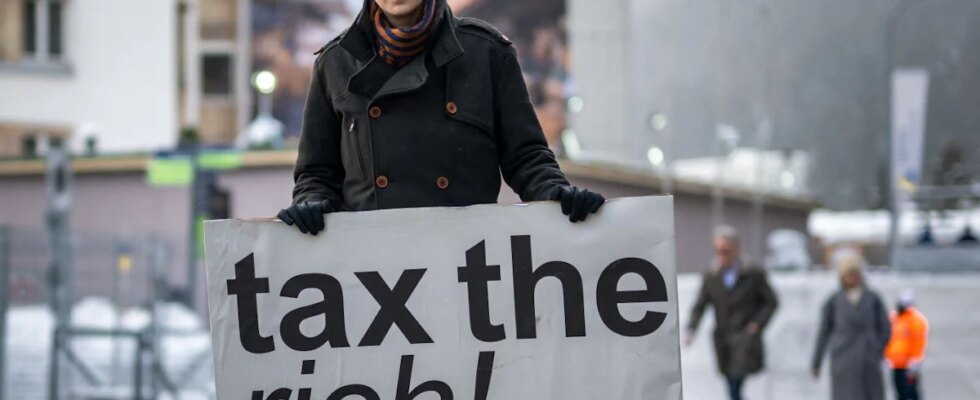She herself did not appear in Vienna that morning. Marlene Engelhorn was therefore not there when it was announced what exactly would happen to her inheritance. The Austrian, born in 1992, is a distant descendant of BASF founder Friedrich Engelhorn. She therefore inherited a considerable fortune from her grandmother Traudl. Engelhorn, who is also involved in the “Tax me now” initiative, does not want to give the inherited money, but rather 90 percent of it, or around 25 million euros, to the general public. Engelhorn had a so-called Good advice for redistribution founded to decide on the uses.
“The money will go to a total of 77 initiatives and organizations,” said Alexandra Wang, who organized the entire process for Engelhorn, on Tuesday. Most of the money will not be paid out in one go, but over several years. the list of recipients published, from the Association of Autonomous Austrian Women’s Shelters to the Tyrolean Street Newspaper 20s There are many smaller and larger amounts. The Austrian Nature Conservation Union received a good 1.6 million euros, the largest amount. “The result is as diverse as the council itself,” said Wang.
Engelhorn’s idea of dividing up the inheritance and the process involved attracted a great deal of public attention, and was also intensively and professionally covered on social media, such as Instagram. “Inheritance is an imposition on society,” the Viennese activist explained her move, because inheritance increases inequality in society and thus cements power structures, which endangers democracy.
That is why the so-called Good Council was founded, with 50 members aged between 16 and 85 who were selected in a complex process to represent Austria. The condition: the people had to live in Austria and be at least 16 years old. This citizens’ council then met on six weekends in a conference hotel in Salzburg and discussed and researched under the guidance of professional moderators. Travel and hotel costs were paid, and there was also childcare, for example. The council members also received 1,200 euros per weekend for their work.
“Sickness makes you poor, and poor makes you sick,” said one council member
“We quickly realized that 25 million is actually a small sum,” said Dietmar Feurstein, one of the council members, on Tuesday. “It wasn’t money that was distributed, but appreciation and respect,” added council member Angelika Taferner. A total of six working groups were formed, each of which could distribute a maximum of four million euros and developed and researched criteria for this; unanimity was required. The remaining amount of 3.7 million euros was then distributed individually by each of the 50 members. “There is a strong connection between poverty and illness. Sickness makes you poor, and poor makes you sick,” stated Kyrillos Gadalla, the schoolboy and the youngest member of the council.
The aim was to reduce inequality in society and give the disadvantaged more opportunities, said project manager Wang. “The greatest result is the work of the Good Council itself,” she added. Questions of distributive justice were discussed intensively. A detailed final report is due to be published in the autumn.
No applications were possible for the grants. The fact that the money is now being distributed very widely, as it were, is probably due to the size of the group and the variety of concerns. Apparently there was no discussion of awarding the entire sum in order to possibly have a greater impact. Engelhorn herself was only present at the first meeting and addressed the council members. After that, she did not interfere any more, it was emphasized. The meetings took place behind closed doors. The total budget for the entire process is said to have been up to three million euros. Engelhorn said in writing on Tuesday that she was “infinitely grateful” to the council members for their work.

